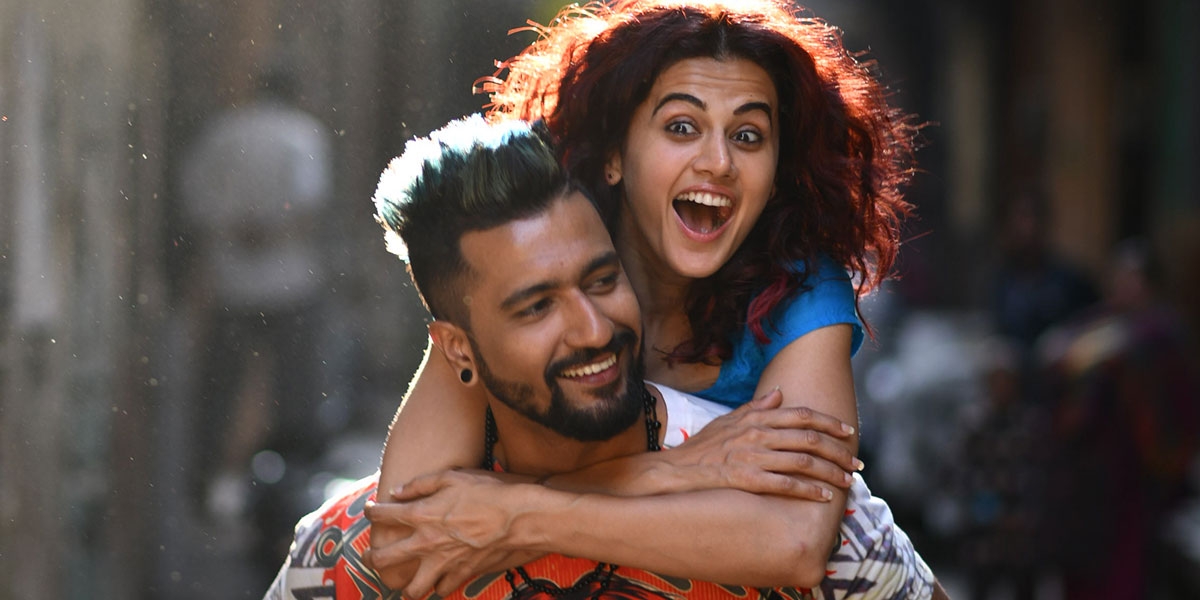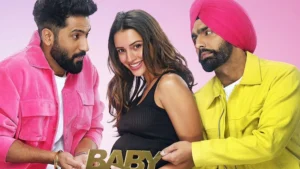
There are only so many routes that a classic love triangle can take in cinema, theatre and literature. There are characters, the buildup and the trials followed by certain compromises, heartbreaks and a culmination which could, at times, be questionable – from moral and logical standpoints. Then comes the area where the film designs its characters – their outlines and arcs – which is where Anurag Kashyap’s fascinatingly titled Manmarziyaan scores high grades. In what could be his first bona fide love story, the filmmaker brings to us three characters who own absolute autonomy in their individual thought processes and decisions, justifying the film’s Hindi title to a T.
Written by Kanika Dhillon, the film’s leading trio flaunts every human shade possible – raw, loud, impulsive, reckless, unfair, moody, ominous, complex, irresponsible, stern – the list is endless and supremely relatable. Rumi, Vicky and Robbie are three youngsters who are real, complex and incessantly selfish – asserting how this is an Anurag Kashyap film, notwithstanding the genre that is fresh in his filmography. This is further reinforced as we see a series of Aarti Bajaj’s stylishly edited segments (the mid-point sequence to pick one) which spin the usual Kashyap madness even within a minimal maze of two men in love with the same woman. The same can be said about the dancing twins who appear occasionally to form a device reflecting the polarity in Rumi’s mind.
Going by the template, Manmarziyaan is as formulaic as a Bollywood film can ever get. We see protagonists who seldom breed thoughts about the loss of pay at work, pending EMIs or any other everyman worries. Like any standard romance film, it is pyaar (love) that drives the world for them and there’s also a quirky interpretation for physical intimacy with a cheekily coined term fyaar. The film catches us unawares when the Rumi (Taapsee Pannu) and Vicky (Vicky Kaushal) casually discuss the love versus lust dynamics. Having said that, Manmarziyaan is also not a film that seeks an average viewer’s validation with escapist song situations. As is the case with most Kashyap’s films, the soundtrack (Amit Trivedi, good but fleetingly repetitive and monotonous) is an integral part of the narrative and it remains mostly in tandem with the atmosphere and character psyche except for a couple of noticeable instances. The lyrics (Shellee) of the musical numbers aid the film’s dialogue-heavy and tangled character designs.
Set in Amritsar, Manmarziyaan is one film that gives us a fine picture of its milieu as it steps into the immediate premise. Shot tastefully by Sylvester Fonseca, the film lets you feel the claustrophobic middle-class, conservative Sikh households, the rusty lanes and also the scent of piping hot jalebis and samosas. It takes us a while to get used to Pannu’s rendering of the firebrand Punjabi woman in love. Although her volatility comes out as a little laboured in the initial portions, the actress takes giant strides as she straddles between the two men in her life – eventually warming up to us. Kaushal, who gets a fairer deal when it comes to his individual journey, knocks it out of the park as the classic escapist prototype from the region who successfully deserts his costly engineering and MBA courses to eventually becoming a disc jockey. His impulses, needs and thought processes are very well-evaluated until a point in the film and the actor channelizes his energies into the right marquee. It is a rousing moment when Rumi realizes that Vicky elopes with her in a vehicle with a half-full fuel tank, no money and no plans whatsoever. Their dynamics get established uniformly in the first hour, making it a mini-film by itself.
The puzzling bits in Manmarziyaan emerge right when Robbie enters the picture. A seemingly sophisticated Londoner, the introverted youngster is in hometown to look for the ideal wife. Giving him company is his choosy mother, a kind father and a shady matchmaker (Saurabh Sachdeva). Some of the film’s funniest moments are headlined by the matchmaking wedding broker through whom the writer wittily exposes the outlandish concept of “arranged marriages” in India. The film also throws in a brief yet warm chat between Robbie and his father where the latter shares his experience as a young bridegroom.
Coming back to Robbie, it is baffling how a man as evolved as him doesn’t feel the need for his partner’s consent before tying the nuptial knot. There is a point where he is questioned about the same to which he answers, “I was in love,” which sounds all the more frivolous if we take those moments into account where he tells Rumi about his escapades. Even though the portions where Rumi experiences fluctuating affection for both men remain the film’s finest, Robbie’s standpoint in this juncture is bizarre and half-baked. We feel as if the character is way too reticent to express his love or to make a serious attempt to heighten his intimacy with Rumi. Plus, the jolt that he feels upon overhearing a conversation between Rumi and Vicky appears all the more implausible. Abhishek Bachchan, who returns after a short break, plays his part with utmost honesty but we also sense how he belongs to a completely different school of acting. If the scene spells the need for high-voltage dramatics, the actor carves it out to the hilt – so much so that we feel the itch of glycerin in his dripping eyes. Besides the aforementioned contrast with his co-actors, none of it is a grave problem especially as we get to see Robbie flaunt the charming lopsided smile upon receiving a minuscule compliment from his ladylove.
The impact slides further south as the film approaches the finale where the writer (Dhillon) seems to have given up on her complicated leads and their daredevilry. For intricacies that took hours of back-and-forth to establish, Manmarziyaan decides to end almost suddenly with the protagonists turning into near-absurd beings. The point where Rumi makes her ultimate decision is unreasonable and sudden – stripping Dhillon’s characters of their autonomous dispositions thus far. Injected with certain cutesy, overtly rom-com-like closures, the extended climatic segment is suitably syrupy for a conventional Hindi film. However, it comes across more as an apology to the viewers who have had a zany ride thus far.
One easily notices how the classic Kashyap stamp makes us overlook the writing incongruities to a certain extent even though it isn’t stout enough to conceal a framework that is extremely familiar and is equipped with inhabitants high on nuances. As the film concludes, it yields you with a fuzzy feeling of having endured an upgraded, rash version of a film like, say, Basu Chatterjee’s sublime Rajnigandha. Closer to contemporary times, it could even be akin to Maneesh Sharma’s Shuddh Desi Romance sans excessively coloured frames and other miscellaneous mandates in Yash Raj cinematic universe. Then again, we should rather be worrying if Manmarziyaan bred any of their respective aspirations in the first place.
Rating: ★★★
P.S.: The English title of the film ‘Husband Material’ is one that automatically charters the film into the frothy, romantic comedy territory, which is a space that the film doesn’t fully belong to.

